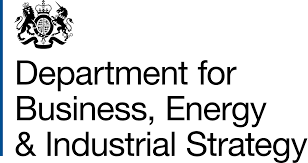HISTORIC PRESS RELEASE : Review of Myners Principles for Institutional Investment Decision Making [December 2004]
The press release issued by HM Treasury on 17 December 2004.
Progress positive but further work needed, the Government said today, as it brought forward new proposals to strengthen the Myners principles. This follows the conclusion of its review into how effective the Myners principles have been in improving pension schemes’ investment decision-making.
The review marks another important step in the Government’s programme of reform to improve the efficiency of the investment chain which links savers and the companies in which they invest. This is of vital economic importance for productivity and long-term growth, because the investment chain is a critical mechanism for ensuring that investment is efficiently allocated.
Announcing publication, Financial Secretary Stephen Timms MP said:
“I welcome the efforts that pension schemes, particularly the larger ones, are making to adopt the Myners principles: everyone – consumers, industry and Government, but especially pension schemes themselves – stands to benefit as a result. However, our review shows that further action is needed to accelerate progress in key areas, in particular in relation to trustee expertise and decision-making processes.”
Paul Myners, author of the original Myners Review, said:
“I am very pleased that the principles are now widely accepted as the benchmark of best practice for investment decision-making. But more change is needed before the vision of a much-better functioning system I set out in my original report will be realised.”
The Government proposes to strengthen and amplify the Myners principles in respect of the areas where progress has lagged. These revisions will make clear that:
-
the chair of the board should be responsible for ensuring that trustees taking investment decisions are familiar with investment issues and that the board has sufficient trustees for that purpose;
-
for funds with more than 5,000 members, the chair of the board and at least one-third of trustees should be familiar with investment issues (even where investment decisions have been delegated to an investment subcommittee);
-
funds with more than 5,000 members should have access to in-house investment expertise equivalent at least to one full-time staff member familiar with investment issues;
-
as well as contracting separately for investment and actuarial advice (as the principles currently require), in relation to investment advice, funds should also contract separately for strategic asset allocation and fund manager selection advice. (This is consistent with Sir Derek Morris’s analysis in his interim assessment of his review of the actuarial profession – see below.);
-
trustees should provide the results of monitoring of their own performance to members, and ensure that key information provided to members is also available on a dedicated fund website.
The Government will also explore, in conjunction with stakeholders, the practicalities of a voluntary, independently-compiled report on compliance with the Myners principles by trustees, akin to the FRAG reports commissioned by custodians to demonstrate to clients their compliance with various internal control procedures. This would help provide an informed commentary on how the principles are being implemented, and help trustees validate and benchmark their decision-making procedures more effectively.
The interim assessment of Sir Derek Morris’s review of the actuarial profession, also published today, provides further analysis of the investment consultancy market, and identifies a need: to increase trustee knowledge and understanding; to encourage greater scrutiny and market testing of advice; and to discourage the supply of such advice being bundled with other services.



